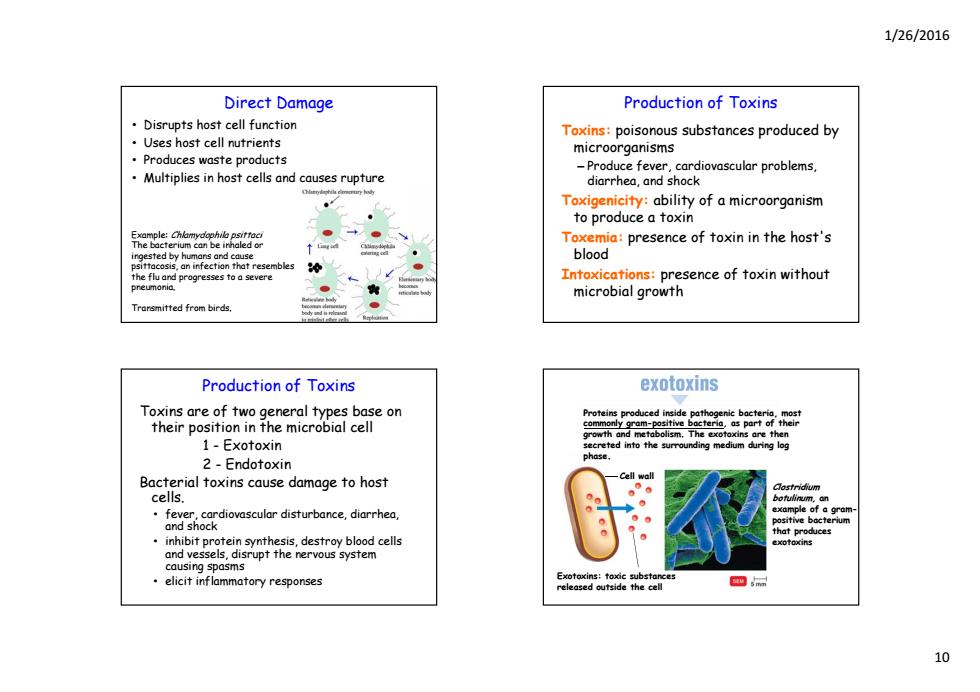正在加载图片...

1/26/2016 Direct Damage Production of Toxins Disrupts host cell function Toxins:poisonous substances produced by Uses host cell nutrients microorganisms Produces waste products -Produce fever,cardiovascular problems. Multiplies in host cells and causes rupture diarrhea,and shock Toxigenicity:ability of a microorganism to produce a toxin Toxemia:presence of toxin in the host's blood esembles progresses to se Intoxications:presence of toxin without microbial growth Trarsmitted from birds. Production of Toxins exotoxins Toxins are of two general types base on their position in the microbial cell 尝二等 1-Exotoxin into the surrounding medium during log 2-Endotoxin Bacterial toxins cause damage to host cells. fever,cardiovascular disturbance,diarrhea, and shock produces .inhibit protein synthesis,destroy blood cells and vessels,disrupt the nervous system causing spasms elicit inflammatory responses Exotaxins de the c目 o1/26/2016 10 Direct Damage • Disrupts host cell function • Uses host cell nutrients • Produces waste products • Multiplies in host cells and causes rupture Example: Chlamydophila psittaci The bacterium can be inhaled or ingested by humans and cause psittacosis, an infection that resembles the flu and progresses to a severe pneumonia. Transmitted from birds. Production of Toxins Toxins: poisonous substances produced by microorganisms – Produce fever cardio Produce fever, cardiovascular problems vascular problems , diarrhea, and shock Toxigenicity: ability of a microorganism to produce a toxin Toxemia: presence of toxin in the host's blood Intoxications: presence of toxin without microbial growth Production of Toxins Toxins are of two general types base on their position in the microbial cell 1 - Exotoxin 2 - Endotoxin Bacterial toxins cause damage to host cells. • fever, cardiovascular disturbance, diarrhea, and shock • inhibit protein synthesis, destroy blood cells and vessels, disrupt the nervous system causing spasms • elicit inflammatory responses Proteins produced inside pathogenic bacteria, most commonly gram-positive bacteria, as part of their growth and metabolism. The exotoxins are then secreted into the surrounding medium during log phase. Cell wall Clostridium botulinum, an example of a grampositive bacterium Exotoxins: toxic substances released outside the cell that produces exotoxins